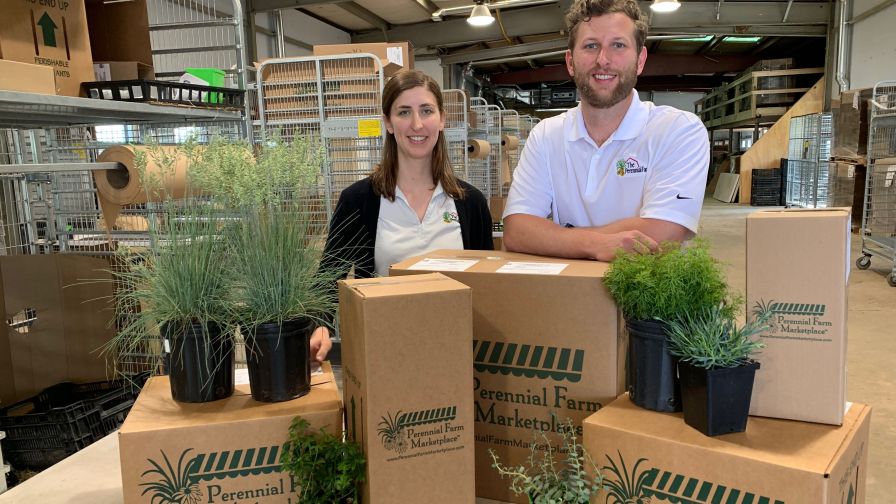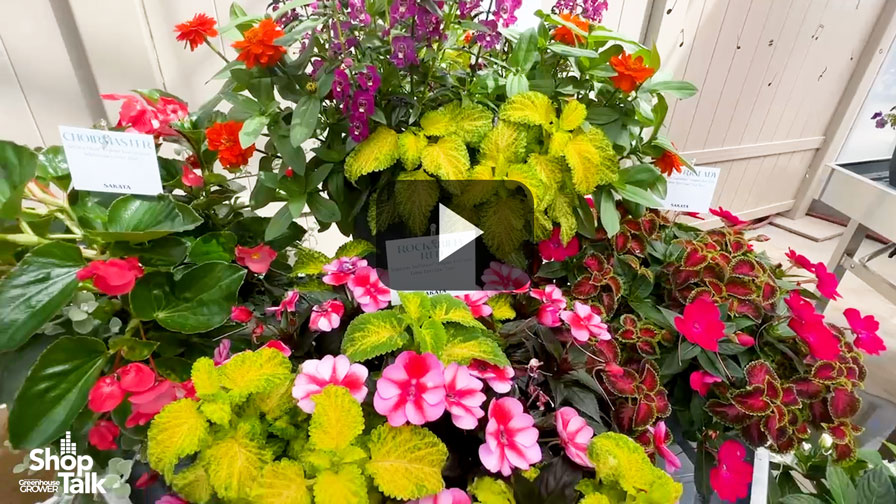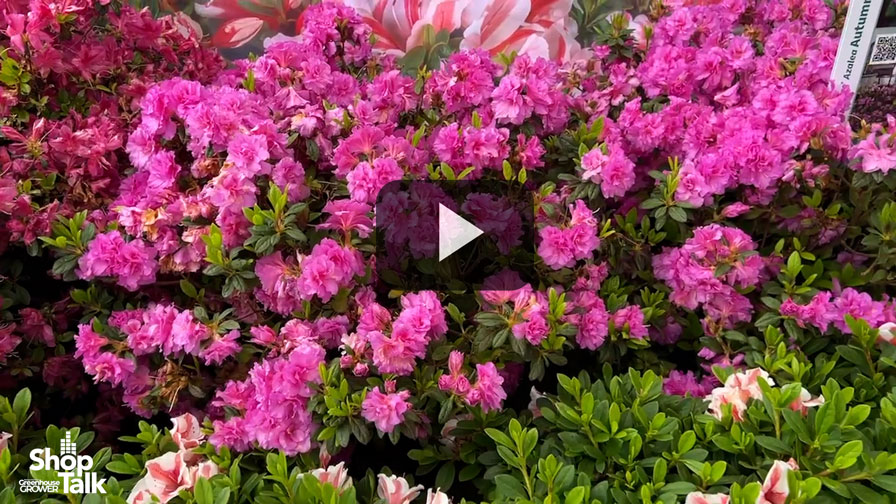Allan Armitage on How E-Commerce Is Helping Plant Growers Reach New Customers

The Perennial Farm’s Katie and Tom Watson spearheaded efforts to upgrade the company’s website and enhance productivity. They experimented with more efficient methods for boxing and shipping small quantities of plants, and spent considerable time on advertising to the public. Photo: Allan Armitage
The more I am in this business, the more I learn of the initiative by which plants are bred, evaluated, grown, marketed, distributed, and sold. I suppose the manufacture of nuts and bolts or the selling of electronics are similarly ingenious, but we work with living organisms, and that adds a very different layer to the business of horticulture.
It is said that necessity is the mother of invention. True enough, but I also believe that innovation is the mother of change.
Innovation is often thrust upon us, forcing us to do new things quickly, often with reluctance. Restaurant owners had to quickly retool to add drive-thru facilities and/or outdoor seating during the pandemic. Yet, that reluctance often morphed into a healthy return, and they continue the practices today.
However, it is the innovations that come with thought and time that I am so impressed with. Successful wholesale growers of ornamentals spend significant time and energy developing marketing strategies to enhance market share. Balancing salespeople, independent brokers, and inventory is challenging enough. Taking care of existing customers has always been important, but reaching new ones is the holy grail.
The Rising Potential of E-Commerce
A handful of wholesale growers have gone out on a limb and established their own e-commerce sites, as a complement to their already existing businesses. In the age of Amazon and Wayfare, perhaps it makes sense to investigate e-commerce, but the only commonality between the business of wholesale growing and mail order is the plant. To take on e-commerce on top of running your existing business takes time, thought, and a ton of innovation.
There are a handful of respected nurseries that have been successful in adding e-commerce to their business model. I chatted with a few of them, and was given permission to share some of the behind-the-scenes challenges faced by The Perennial Farm in Glen Arm, MD.
The company had been playing with shipping small orders that would not fit on the truck and had experimented with ideas that might appeal to consumers, like a “Garden in a Box.” However, when Amazon bought Whole Foods in 2016, they discussed the idea that if Amazon could ship perishables like food, then maybe Perennial Farm could ship their own plants, and do much more with online sales than they were presently doing. As Ed Kiley, Director of Marketing quipped, “we had an e-commerce side of the business in place, but when our wholesale business ramped up in the spring, it was essentially forgotten.”
Yet, today, The Perennial Farm sells material through Amazon and has established its own successful online site, PerennialFarmMarkeplace.com. Business has risen in all aspects of the company’s bottom line, but the demand for online purchasing has resulted in the e-commerce side rising from about 1% of sales a few years ago to nearly 10% of total sales today.
It did not happen overnight, but that’s because Kiley says the company took the process seriously.
“Many ideas were tried, and more than a few failed,” Kiley says. “It was not a straight line to success. Our owners Katie and Rick Watson spearheaded efforts to upgrade the online site and enhance productivity. They experimented with more efficient methods for boxing and shipping small quantities of plants, and spent considerable time on advertising to the public. When COVID-19 hit, and e-commerce started going through the roof, the website and plan were well in place.”
In the background, the production of plants, the gathering of trucks, and the day-to-day management of the wholesale nursery continued. Essentially, as an independent arm of the business, The Perennial Farm dealt with the frustrations and challenges of e-commerce, but along with its excellent team, has established e-commerce as an important part of the business.
I asked Ed if there was pushback from their wholesale customers; that is, did their garden center customers feel they were also now competing with their supplier?
“Yes, there was a bit of that, but it soon became obvious that our online customers were not the same people who shopped in their stores,” Kiley says. “That problem has all but disappeared.”
Online sales will continue to be part of the marketing landscape. Wholesale growing /shipping and online sales have mostly been independent of each other, for good reason. They both require huge commitments in time, money, and people, and few companies wish to stretch their resources any further to do both. However, as Tom Watson, Product Manager at The Perennial Farm, states, “Online sales have allowed us to reach people we never would have found.”
The Perennial Farm is not the only wholesaler successfully expanding into online sales. COVID-19 helped expand the e-commerce market for several wholesale growers, but while COVID will go away, e-commerce business is here to stay.









